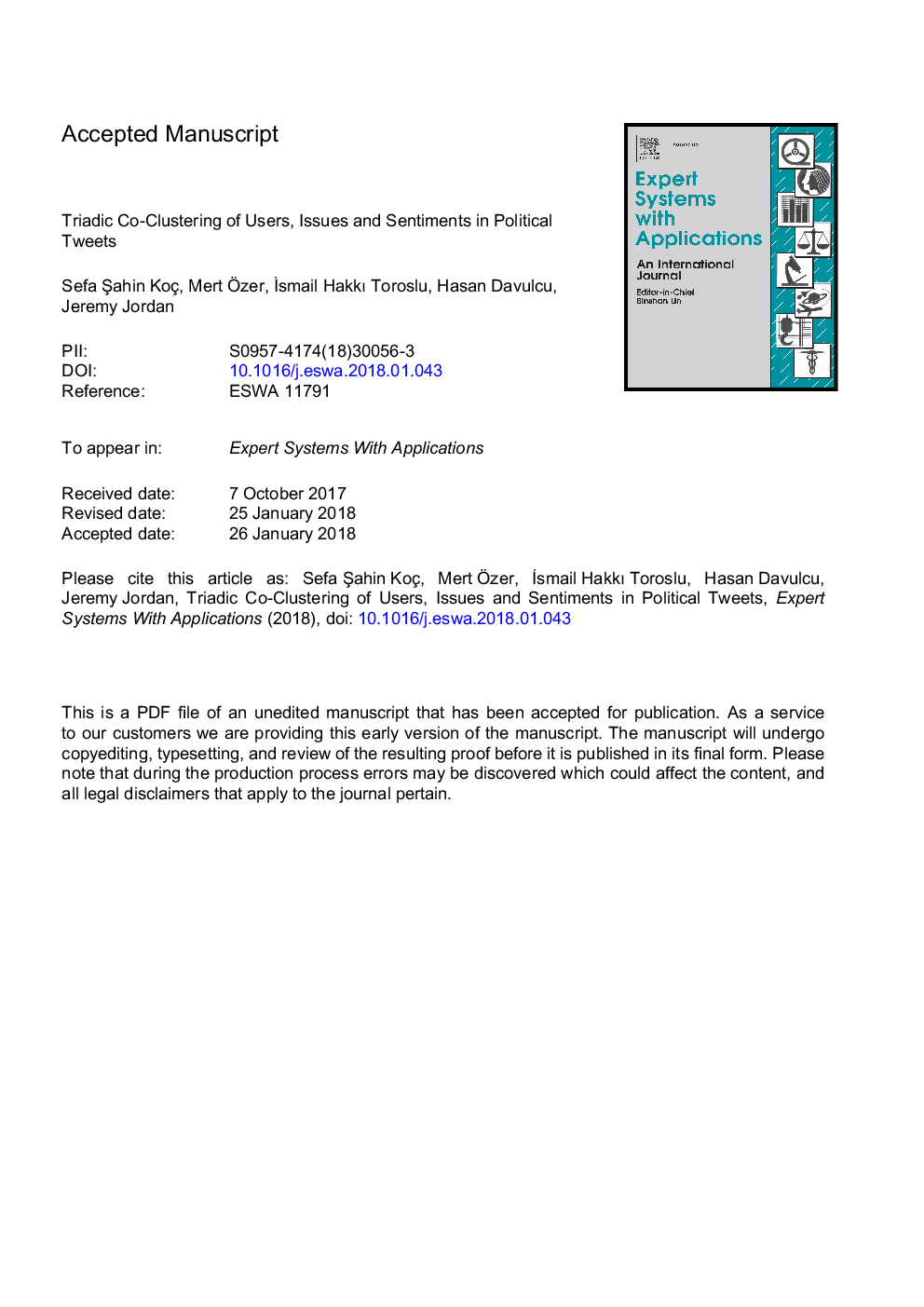| Article ID | Journal | Published Year | Pages | File Type |
|---|---|---|---|---|
| 6855106 | Expert Systems with Applications | 2018 | 43 Pages |
Abstract
Social network data contains many hidden relationships. The most well known is the communities formed by users. Moreover, typical social network data, such as Twitter, can also be interpreted in terms of three-dimensional relationships; namely the users, issues discussed by the users, and terminology chosen by the users in these discussions. In this paper, we propose a new problem to generate co-clusters in these three dimensions simultaneously. There are three major differences between our problem and the standard co-clustering problem definition: a node can be a member of more than one clusters; all the nodes are not necessarily members of some cluster; and edges are signed and cluster are expected to have high density of positive signed edges, and low density of negative signed edges. We apply our method to the tweets of British politicians just before the Brexit referendum. Our motivation is to discover clusters of politicians, issues and the sentimental words politicians use to express their feelings on these issues in their tweets.
Related Topics
Physical Sciences and Engineering
Computer Science
Artificial Intelligence
Authors
Sefa Åahin Koç, Mert Ãzer, Ä°smail Hakkı Toroslu, Hasan Davulcu, Jeremy Jordan,
